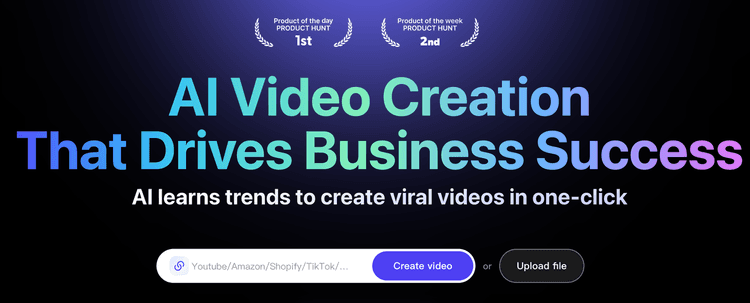Exploring Privacy Risks with OpenAI's Advanced Capabilities
Emma Ke
on August 11, 20247 min read
OpenAI is a leading figure in artificial intelligence, driving significant advancements in the industry. The company experienced a remarkable 700% surge in revenue in 2023 and collaborates with over 214 companies, each employing more than 10,000 individuals. However, the rapid growth of AI technologies has brought Data Usage and Privacy Concerns to the forefront. Understanding these risks is crucial for safe AI integration. Chat Data offers a solution with its HIPAA-compliant Medical Chat platform. Learn How to build a HIPAA-compliant Medical Chatbot to ensure both privacy and data security.
Understanding OpenAI's Advanced Capabilities
Overview of OpenAI's Technologies
Natural Language Processing
OpenAI has revolutionized natural language processing (NLP) with advanced models like GPT-3. This autoregressive transformer model processes and generates human-like text, enabling conversational AI, content creation, and more. ChatGPT, a variant of GPT-3, excels in providing conversational responses, enhancing customer service and interactive applications by simulating human dialogue.
Machine Learning Models
OpenAI's machine learning models extend beyond text. DALL-E generates images from textual descriptions, opening new possibilities in design and creativity. Codex translates human input into code, streamlining software development. Whisper recognizes and transcribes speech, offering robust solutions in speech recognition.
Potential Applications and Implications
Industry Use Cases
OpenAI's technologies have applications across various industries. In healthcare, AI-powered tools like Chat Data's HIPAA-compliant medical chatbot ensure privacy and data security. Chat Data allows customization of chatbots to meet specific needs, adhering to strict privacy standards to safeguard sensitive user information.
In the creative sector, DALL-E empowers artists and designers to generate unique visuals. Businesses leverage Codex to automate coding tasks, enhancing productivity. Whisper facilitates transcription services, benefiting media and communication industries.
Societal Impact
OpenAI's advancements significantly impact society. AI-driven tools improve accessibility, offering solutions for individuals with disabilities. ChatGPT provides educational support, acting as a tutor for students. These technologies raise privacy concerns, emphasizing the need for responsible AI use. Balancing innovation with ethical considerations is essential.
Data Usage and Privacy Concerns

Identifying Privacy Risks
Data Collection and Usage
OpenAI's advanced capabilities raise significant Data Usage and Privacy Concerns. The collection of vast amounts of data fuels AI systems, enabling them to learn and improve. However, this extensive data collection poses risks to user privacy. AI systems often gather personal information without explicit consent, leading to potential misuse. Users must remain vigilant about the data shared with AI platforms. Understanding the implications of data usage is crucial for maintaining privacy.
Chat Data offers a solution by providing a HIPAA-compliant Medical Chat platform. This platform ensures that sensitive patient information remains confidential by adhering to strict privacy standards, protecting user data from unauthorized access. Users can customize chatbots to meet specific needs while safeguarding privacy. This blog provides detailed information on how to build a HIPAA-compliant Medical Chatbot, guiding users in creating secure and private chatbot solutions.
Consent and Transparency Issues
Transparency in data usage remains a critical concern. Many AI systems lack clear communication regarding data collection practices, leaving users unaware of how their data is used or shared. This lack of transparency undermines trust in AI technologies. Establishing clear guidelines for data usage is essential for protecting privacy. Users should demand transparency from AI providers to ensure safe interactions.
Chat Data prioritizes transparency in its operations, providing detailed information on data handling practices. By offering clear insights into data usage, Chat Data builds trust with its users, setting a standard for responsible AI usage.
Security Vulnerabilities
Potential for Data Breaches
AI systems face significant security vulnerabilities, with data breaches posing a major threat to user privacy. Unauthorized access to sensitive information can lead to severe consequences. AI providers must implement robust security measures to prevent breaches. Users should remain cautious when sharing personal data with AI platforms.
Chat Data addresses these concerns with its HIPAA-compliant Medical Chat platform. The platform employs advanced security protocols to protect user data. By not storing chat histories by default, Chat Data minimizes the risk of data breaches. Users can securely manage conversation data through real-time webhook integration, ensuring patient information remains safe from unauthorized access.
Mitigation Strategies
Mitigating privacy risks requires proactive strategies. AI providers must prioritize data protection to ensure user safety. Implementing encryption and anonymization techniques can enhance data security. Users should seek platforms that offer strong privacy-preserving features.
Chat Data leads the way with its innovative privacy-first approach, utilizing encryption to safeguard user data and anonymization techniques to further protect sensitive information. By visiting the How to build a HIPAA-compliant Medical Chatbot, users can explore how to build a HIPAA-compliant Medical Chatbot, gaining valuable insights into creating secure and private chatbot solutions.
Addressing Privacy Concerns
Regulatory Frameworks
Current Regulations
Regulatory frameworks play a crucial role in safeguarding privacy within AI applications. The General Data Protection Regulation (GDPR) in Europe sets stringent standards for data protection, and organizations must comply with these regulations to ensure user privacy. The California Consumer Privacy Act (CCPA) provides similar protections in the United States, mandating transparency in data collection and usage.
Chat Data adheres to these legal standards by implementing robust privacy measures, ensuring compliance with HIPAA regulations to protect sensitive patient information. Users can trust Chat Data to handle data responsibly and securely, aligning with current regulatory requirements.
Future Policy Directions
Future policy directions will likely focus on enhancing privacy protections in AI technologies. Governments and regulatory bodies recognize the need for stronger data protection measures. Emerging policies may address ethical considerations beyond existing legal frameworks, aiming to minimize data collection and ensure user control over personal information.
Chat Data remains proactive in adapting to evolving regulations, continuously updating its privacy practices to align with future policy changes. Users benefit from Chat Data's forward-thinking approach to data protection, maintaining its commitment to user privacy.
Technological Solutions
Privacy-Preserving Techniques
Technological solutions offer effective ways to address privacy concerns in AI. Privacy-preserving techniques minimize data exposure while maintaining functionality. Differential privacy adds noise to datasets, protecting individual identities. Federated learning enables AI models to learn from decentralized data sources, reducing data sharing risks.
Chat Data employs advanced privacy-preserving techniques to safeguard user information. The platform's HIPAA-compliant medical chatbot ensures confidentiality during patient interactions, allowing users to customize chatbots to meet specific needs without compromising privacy. Chat Data's innovative approach sets a standard for secure AI solutions.
Role of Encryption and Anonymization
Encryption and anonymization play vital roles in protecting data privacy. Encryption converts data into unreadable formats, preventing unauthorized access. Anonymization removes personally identifiable information from datasets, enhancing data security and reducing privacy risks.
Chat Data utilizes encryption and anonymization to protect user data, encrypting all communications to ensure secure data transmission. Anonymization techniques further safeguard sensitive information, allowing users to rely on Chat Data's robust security measures to protect their privacy. The platform's dedication to data protection underscores its commitment to user trust.
Future Implications and Recommendations

Long-term Impact on Privacy
Evolving Threat Landscape
Artificial Intelligence continues to evolve rapidly, presenting new challenges to the privacy landscape. AI systems process vast amounts of data, increasing the risk of unauthorized access and potential misuse of personal information. Addressing privacy concerns is crucial, balancing innovation with privacy and ethical considerations to guide technological development. The need for robust privacy measures intensifies.
Need for Continuous Monitoring
Continuous monitoring ensures data protection, requiring regular assessments of AI systems to identify privacy risks promptly. Proactive measures address emerging threats, enhancing user trust. Stakeholders must prioritize privacy, implementing effective monitoring strategies to safeguard user data and maintain a commitment to privacy.
Actionable Steps for Stakeholders
Best Practices for Developers
Developers play a key role in privacy protection. Implementing best practices ensures data security, including encryption techniques to safeguard sensitive information and anonymization to minimize personal data exposure. Developers should prioritize transparency, communicate data handling practices clearly, and keep systems updated to address vulnerabilities. Staying informed about privacy regulations and complying with legal standards is vital.
- Implement Encryption: Protect data with advanced encryption methods.
- Use Anonymization: Remove identifiable information from datasets.
- Ensure Transparency: Communicate data handling practices clearly.
- Regular Updates: Keep systems updated to address vulnerabilities.
- Stay Informed: Understand and comply with privacy regulations.
Guidelines for Users
Users must take steps to protect their privacy, understanding data usage and choosing platforms that prioritize privacy. Awareness of data collection practices is important, and users can customize privacy settings and manage passwords securely. Remaining vigilant about sharing personal information and selecting trustworthy platforms with detailed privacy policies is essential.
- Choose Privacy-focused Platforms: Select services that prioritize data protection.
- Understand Data Usage: Be aware of how platforms use your data.
- Customize Privacy Settings: Adjust settings to enhance privacy.
- Manage Passwords Securely: Use strong, unique passwords for each service.
- Stay Vigilant: Be cautious when sharing personal information online.
Chat Data provides a secure platform for building HIPAA-compliant medical chatbots, ensuring data confidentiality and privacy. Users can customize chatbots to meet specific needs, employing encryption and anonymization techniques to protect sensitive patient information. The platform's commitment to privacy sets a standard for secure AI solutions. Visit the Chat Data Pricing page for more information on creating a secure and private chatbot.
Addressing privacy risks in AI remains crucial. Protecting privacy should serve as a cornerstone of AI development. Legal standards must be adhered to, but proactive measures are equally important. Chat Data offers a solution for creating HIPAA-compliant medical chatbots, ensuring data security and user control over personal information. Stakeholders must prioritize privacy in AI development, with ethical considerations guiding technological progress. Strong data protection policies will ensure AI respects individual privacy.


